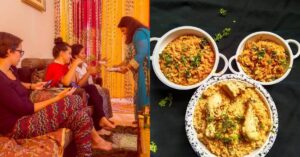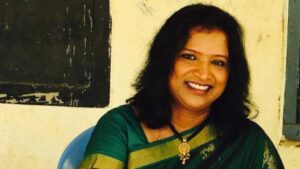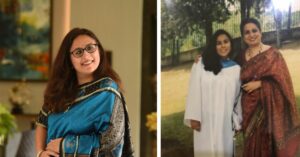‘Building a Safe World for my Son’: Ghazal Alagh on Creating 1st Indian Unicorn of 2022
Ghazal Alagh, the founder of Mamaearth, narrates how her son inspired her venture and gives her insight on why it’s important to invest in women-led startups.
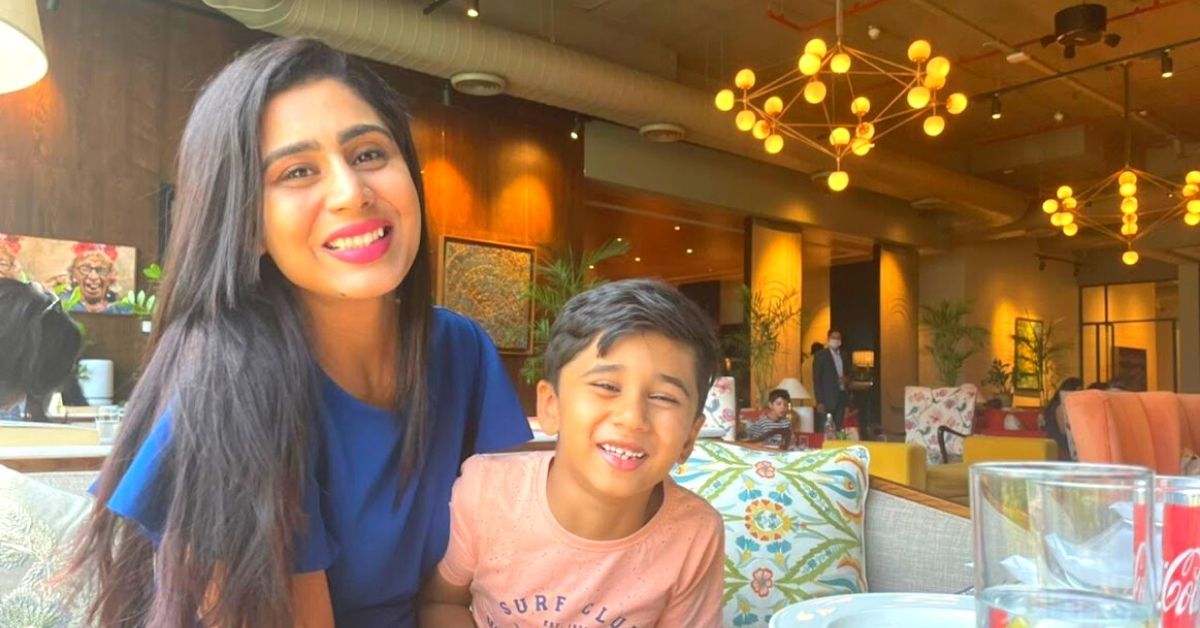
For Ghazal Alagh, an angel investor who recently appeared in the popular reality series Shark Tank India, 2022 has been a remarkable year. (Image above of Ghazal Alagh with her son Agastya)
In January, her digital-first ‘house of brands’ company, Honasa Consumer Pvt. Ltd., with personal care brands like Mamaearth, The Derma Co, Aqualogica and Ayuga, became India’s first unicorn of 2022 after raising USD 52 million in its latest round of funding.
As a result of this round, the venture, which she co-founded with her husband Varun Alagh, is now valued at USD 1.2 billion. This year also saw Ghazal give birth to her second son, Ayaan, on 10 March.
In a conversation with The Better India, she talks about building a unicorn, navigating motherhood while running a successful business, and what she looks for while investing in startups.
Solving a problem, building a business
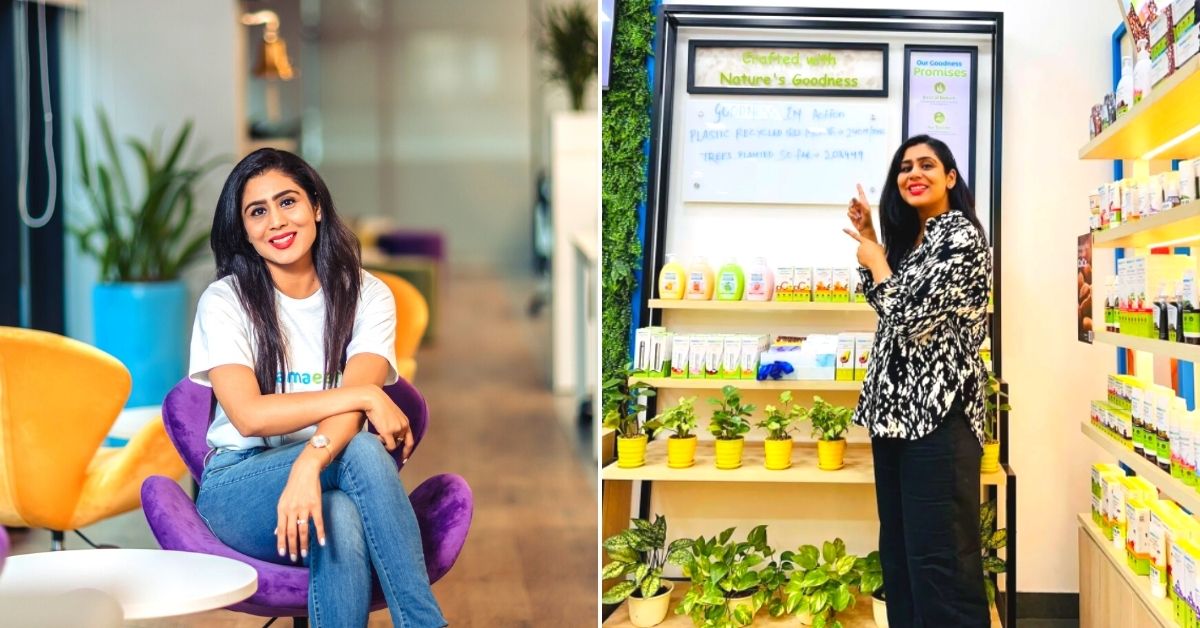
Born and raised in a middle-class family in Chandigarh, Ghazal studied computer science in college. Her first job was that of a corporate trainer working with NIIT and entailed developing softwares and training companies like Infosys on how to use them. She recalls that the year 2011 when she married Varun, was also a period that reignited her childhood passion for painting. In 2013, she even briefly did an intensive course in figurative art at the New York Academy of Art.
Until the birth of their first son Agastya in August 2014, Ghazal and Varun were like any other couple engaged in their respective professional careers.
“The idea behind Mamaearth came alive when Varun and I were expecting our first child. My son was born with a certain skin condition. Any product in India that I used on him gave him rashes and made him cry. As parents, we were determined to create a safe world around him,” recalls Ghazal.
Following their research on baby skin care products in India, the couple found that many contained chemicals, toxins, and ingredients that were harmful to children.
“Even while I was studying in New York, I remember how certain baby skin care products were being removed from shop shelves because they contained carcinogens. And those same ingredients were being used in the products I was applying on my son. Discovering this made me really uncomfortable and scared for my child. Varun and I looked for safer options, but we could not find anything in the Indian market. So, we started ordering products from outside India, while also tracking friends and relatives to help us buy them. But by the time some of these products reached us, they were close to their expiration date,” she says.
That’s when they decided that since there were no other players in the market willing to address this specific problem, they would give it a shot. Ghazal began conducting in-depth research on the ingredients, their availability in India, and costs just to see if their idea was feasible. Following months of intense research, they realised that their idea was doable and they could sell these products at an affordable price.
“We launched Mamaerath’s first set of baby care products in December 2016. These included toxin-free body lotion, mosquito repellent, etc. Within a few months, our mosquito repellent for children ended up becoming a best seller on Amazon. We got a lot of positive responses to this product, particularly from mothers. This was clearly a problem area we were solving,” she says.
Starting out, the couple raised their first small round of funding through friends and family.
“Your relatives and friends are sometimes your biggest critics. In that ‘friends and family round’, Kanwaljit Singh from Fireside Ventures, which invests in early-stage consumer brand startups, also invested in his personal capacity. A couple of months later, he ended up investing again, but this time, formally through Fireside. That was a moment of genuine validation for our business,” she recalls.
Ghazal also spoke to a lot of mothers, took feedback, and realised that many were unaware of the toxins present in other baby skincare products. Besides marketing their products, she also emphasised the need to educate consumers about what to look for when reading labels.
“In the beginning, we had no notion of becoming a unicorn. The initial objective was just to help 1,000-odd parents. Early on, what was really close to our hearts was solving a problem for Indian parents and giving them a better choice for their child. But our consumers suggested we make safer toxin-free personal care products for them as well. That’s how we eventually got into the adult category, which gave us scale and a new market to operate in,” she notes.
Following the ‘friends and family round of investment, they had the requisite business numbers, scale, and consumer insight to show and talk about how Mamaearth was a good proposition for investors. Some of their investors even came on board because they were using Mamaearth products for their child and wanted to know more about the company.
“Listening to consumers has always been important to us in terms of innovating and coming out with newer propositions like in terms of opening new categories,” she notes.
Supporting women entrepreneurs

A large part of Ghazal’s portfolio is investing in startups founded by women. Most of these are young women trying to find a place for themselves with a good business idea that actually solves a problem, or with a proposition not being catered to currently in the Indian market, she says.
“I want to develop a support system for them because I know that starting up or being a founder is a very lonely journey early on. It’s even more difficult for women, although things are getting slightly better. For the large part, however, I don’t see a strong mentor network where women entrepreneurs are actually helping each other to grow. That’s still a gap today as we speak,” she notes.
There are a few WhatsApp groups where Ghazal and other like-minded women entrepreneurs are bringing women startup founders together. But what does Ghazal look for in a business before investing in them, regardless of whether they’re run by men or women?
“It has to solve a consumer problem or you must have a proposition which is not currently being catered to in the Indian market. Another key facet is the product and the price point at which it’s available. A product that is good, but available at a real high price that most consumers cannot afford, is not a business that will scale. Third, we also look at the market size the concerned founder is operating in. You might want to start a niche, but the question eventually becomes whether your vision is to operate in a larger market because scale effectively comes from there. A business only makes sense if it’s scalable and sustainable,” she explains.
Also, going beyond the business, she is more interested in the founders. Are they passionate enough to actually put in all their energy building the business?
“I feel that you must have a very strong purpose for doing that business. When times get difficult, there has to be something that motivates you to go on. For example, that purpose in the early days of Mamaearth was my son. Everytime I felt that things were getting difficult, I would remember his face and feel that this pursuit is not worth giving up,” she adds.
Recently, she invested in a Bengaluru-based startup called Uvi Health founded by Mehak Malik. Uvi Health caters to women and provides a “comprehensive platform for reproductive and wellness concerns like PCOS/ PCOD, period issues, thyroid, infertility and weight gain”.
“I feel period-related issues concerning PCOS/PCOD are areas that are not being actively catered to among other healthcare startups in India. Most of them are dealing with bigger and more popular health concerns. This PCOS/PCOD problem among women is large enough. Mehak is trying to solve this by giving women access to the right kind of doctors, diet and exercise plans online,” she says.
Another very recent investment has been BlissClub, a homegrown Indian activewear brand, who are here to “create for every moment of a woman’s active life”.
“They are disrupting the market because there are no real Indian players who have been able to achieve scale by offering comfort wear for women. For example, no leggings or yoga pants come with pockets. In both startups, I felt that the founders are so close to consumers that they’re actually able to understand these little nuances,” she adds.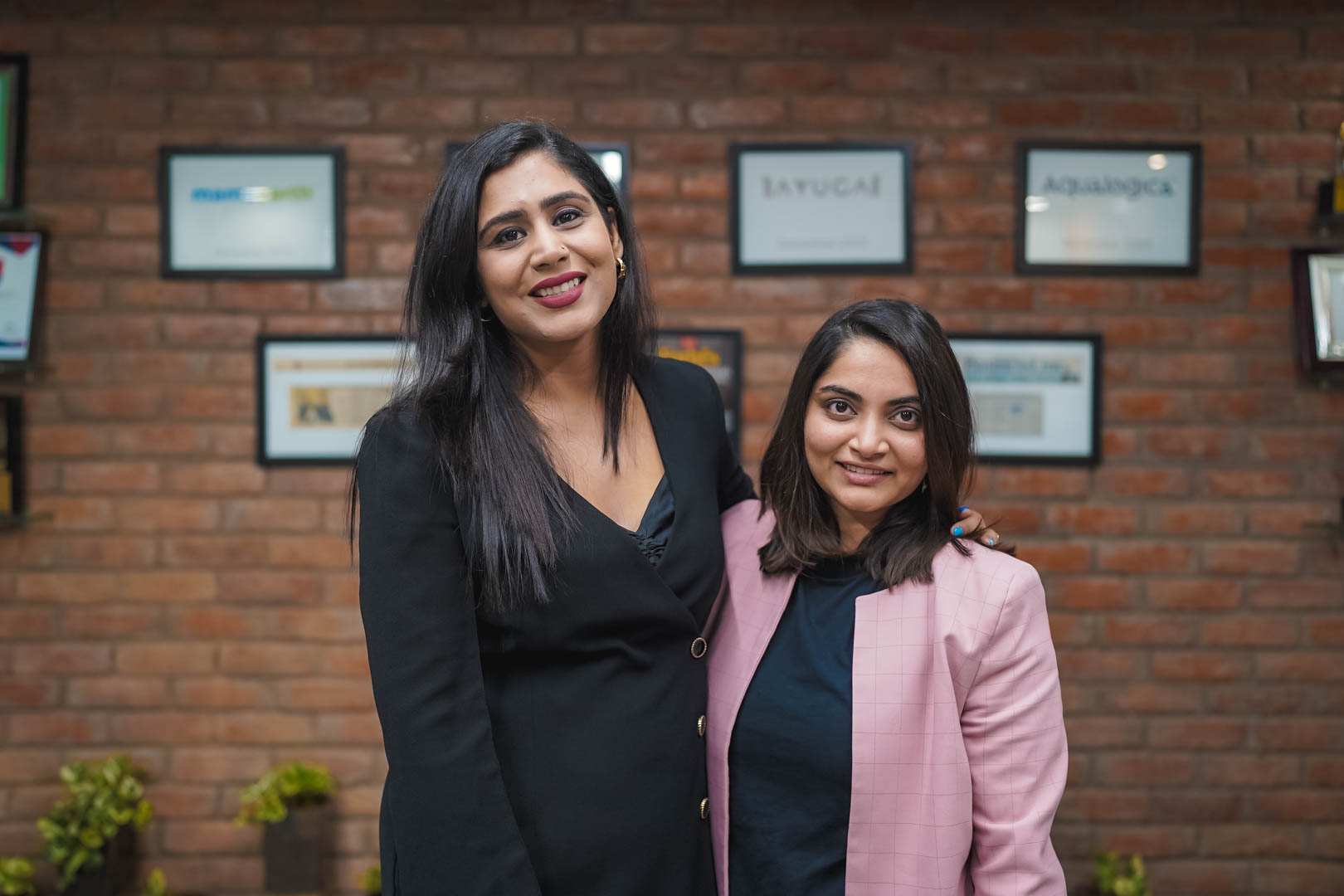
Motherhood, business & mompreneurs
Ghazal admits quite candidly that the notion of balancing motherhood and running a successful business is a ‘myth’.
“There are days when my children need more time than the business. There are also days when I can’t give my children as much time because of the demands set by the business. However, one thing I have done to address this is calendarise not just professional commitments, but also personal ones, like blocking 30 minutes on any given day to buy stationary for my son and discuss his day in school,” she notes.
She has also learned to say no to certain events, meetings or interviews that don’t add value. “I say no to a lot of interviews that I feel will not add any value, or unnecessary meetings for discussing issues that can be addressed by a 5-minute phone call. This has helped me find more time.”
“Finally, since you’re a mother running a business, it’s important to take care of yourself, have that ‘me time’ for your peace of mind, and some space to plan your day or week. You actually end up happier because you’re in control,” she says.
Another piece of advice she has for mothers who are also navigating entrepreneurship is to not shy away from seeking help or comfort when things don’t go their way.
“Starting out, we left the comfort of a fixed salary and asked our parents to support us. For a long period of time, I felt that the responsibility of doing anything and everything was on me — whether it was raising a child, solving business-related problems, or scaling up. There was one day when things got too much for me emotionally and I broke down,” she recalls.
On the verge of giving it all up, her husband asked her why she didn’t ask for help.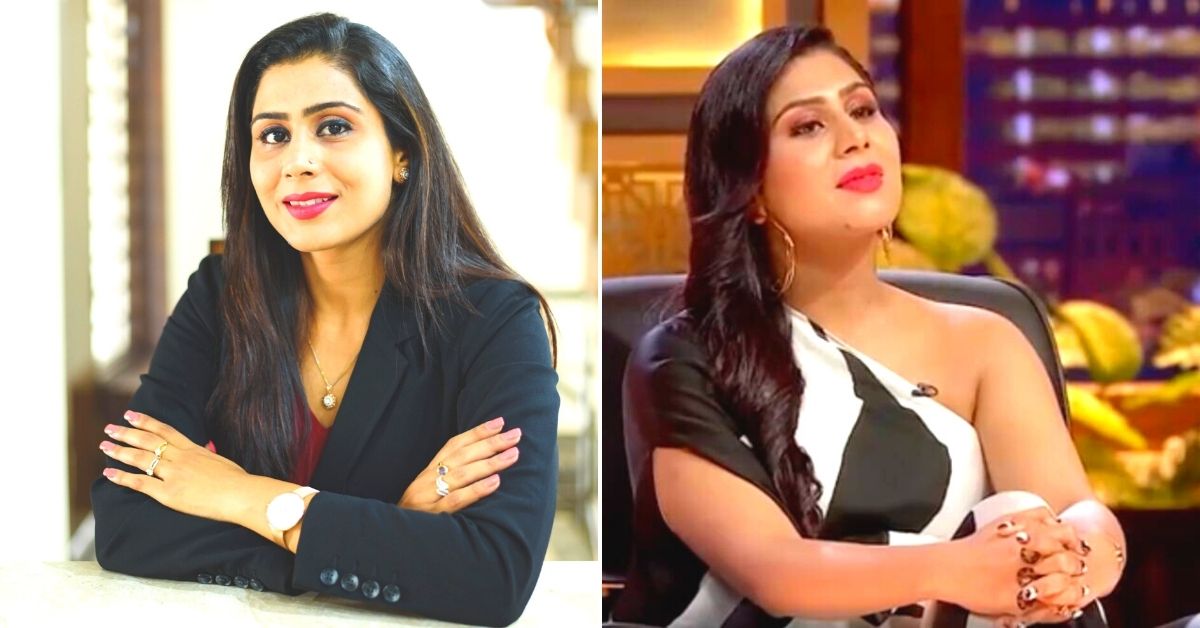
“It’s not easy to ask for help. But I asked my family and was surprised by the support that I got. A piece of advice that I have for ‘mompreneurs’ is that you don’t have to solve everything. Please ask for help from people around you, believe that they will come forward to help and are willing to be uncomfortable,” she explains.
(Edited by Divya Sethu)
Like this story? Or have something to share? Write to us: [email protected], or connect with us on Facebook and Twitter.
This story made me
- 97
- 121
- 89
- 167
Tell Us More
We bring stories straight from the heart of India, to inspire millions and create a wave of impact. Our positive movement is growing bigger everyday, and we would love for you to join it.
Please contribute whatever you can, every little penny helps our team in bringing you more stories that support dreams and spread hope.






